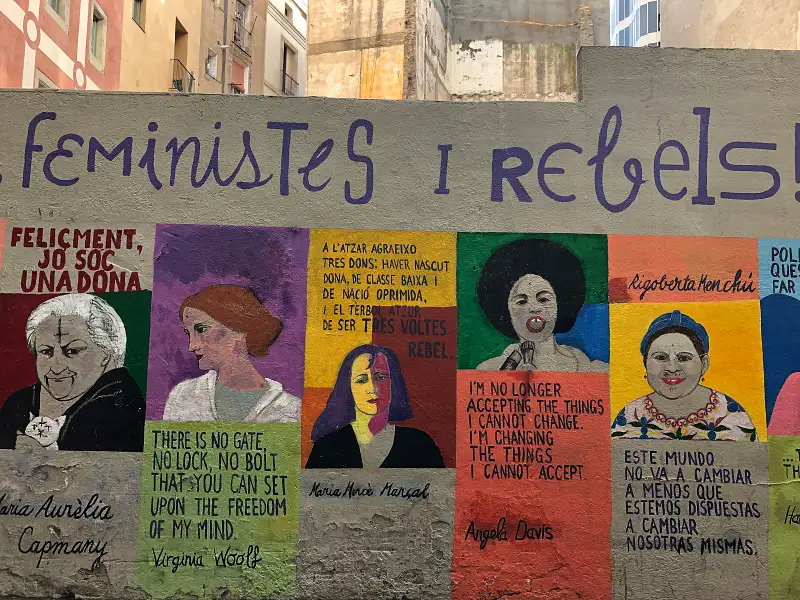Table of Contents
- Defining New Social Movements
- Key Theoretical Frameworks for Understanding New Social Movements
- Characteristics of New Social Movements
- The Globalization of New Social Movements
- Criticisms and Challenges
- Conclusion
In contemporary sociology, the study of social movements has undergone significant transformation, particularly with the rise of what are known as “new social movements” (NSMs). These movements are distinct from earlier labor and class-based movements in both structure and purpose. While classical social movements typically focused on economic redistribution and class struggles, NSMs center on issues related to identity, culture, and quality of life. They have become essential to understanding modern political activism and the ways in which individuals and groups mobilize for change in a post-industrial society. This article will explain the defining characteristics, theoretical frameworks, and implications of new social movements, providing a comprehensive overview of this crucial sociological phenomenon.
Defining New Social Movements
New social movements are distinguished from traditional movements by their focus on post-material values, such as environmentalism, feminism, and human rights, rather than class-based issues. These movements seek to address the concerns that arise in a more affluent, post-industrial society, where the basic economic needs of large segments of the population have been largely met. As a result, NSMs emphasize issues of self-expression, autonomy, and the recognition of identity, rather than struggles over wages or working conditions.
One of the defining features of NSMs is their focus on issues related to identity and culture. For example, the feminist movement seeks not only equal rights and opportunities for women but also challenges societal norms and gender roles. Similarly, LGBTQ+ movements demand recognition and acceptance of diverse sexual identities and aim to reshape cultural understandings of sexuality. These movements challenge deep-seated social norms and push for a reconfiguration of cultural values and identities.
Moreover, NSMs are often more decentralized and horizontal in their organizational structures than traditional labor movements. Rather than a hierarchical leadership, these movements tend to favor more democratic and participatory forms of organization, with multiple leaders or autonomous groups working in coalition. This decentralized structure reflects the values of many NSMs, which prioritize autonomy and the rejection of traditional authority structures. This form of organization allows for more fluid and dynamic activism, often enabled by new technologies such as social media, which facilitate decentralized coordination and communication.
Key Theoretical Frameworks for Understanding New Social Movements
Several sociological theories have been developed to explain the rise and characteristics of new social movements. One of the most influential frameworks is the Resource Mobilization Theory, which emphasizes the importance of resources—whether they are financial, human, or organizational—in determining the success of a social movement. According to this theory, the emergence and sustainability of a movement depend on its ability to effectively mobilize and allocate resources. While NSMs may not be driven by economic redistribution, they still require significant resources to achieve their goals, whether in the form of media visibility, public support, or political alliances.
Another critical theoretical perspective is the Political Process Theory, which focuses on the political opportunities and constraints that shape a social movement’s development. Political process theorists argue that social movements arise not simply because grievances exist, but because of favorable political conditions that allow for collective action. In the context of new social movements, changes in cultural attitudes, the expansion of civil rights, and shifts in the political landscape create opportunities for NSMs to thrive. For example, the civil rights movement in the United States created a broader context of awareness and legal reform that allowed later movements such as feminism and LGBTQ+ activism to build on its successes.
In addition to these structural theories, Cultural Theories play a vital role in understanding new social movements. Unlike traditional movements that focused primarily on material goals, NSMs emphasize cultural change and the transformation of norms, values, and identities. Cultural theorists argue that NSMs are engaged in what is often called the “politics of meaning,” where the movement’s primary goal is to reshape social understandings of race, gender, sexuality, and environmental responsibility. These movements challenge the dominant cultural narratives and work to create alternative discourses that promote inclusivity and equality.
Identity Theory also provides a crucial lens for understanding the dynamics of NSMs. Identity plays a central role in many new social movements, as they often coalesce around marginalized or stigmatized identities. For instance, feminist movements not only campaign for equal rights but also seek to redefine gender roles and challenge patriarchal structures. Similarly, LGBTQ+ movements aim to legitimize non-heteronormative identities and dismantle the cultural and legal structures that have historically oppressed them. The focus on identity allows these movements to address both individual and collective needs for recognition and autonomy.
Characteristics of New Social Movements
New social movements exhibit several defining characteristics that distinguish them from their classical predecessors. These characteristics include their focus on identity and cultural politics, decentralized organizational structures, and engagement with post-material values.
Emphasis on Identity and Culture
As previously mentioned, one of the most salient features of NSMs is their focus on issues of identity and culture. These movements often seek to address forms of oppression and inequality that are rooted not in class-based exploitation but in social and cultural practices. For example, the environmental movement does not simply demand legislative changes; it also calls for a transformation in the way individuals and societies view their relationship with nature. This shift in perspective highlights the importance of cultural and ideological change in NSMs.
Similarly, movements advocating for racial justice, such as Black Lives Matter, challenge not only institutional racism but also the cultural stereotypes and systemic biases that perpetuate racial inequality. These movements are often involved in what sociologists call frame alignment, a process by which movements work to align their goals and values with the broader societal context. In the case of NSMs, frame alignment often involves challenging dominant cultural narratives and offering alternative visions of social justice and equality.
Decentralized and Networked Organization
Another important characteristic of new social movements is their decentralized and networked organizational structure. Unlike traditional labor movements, which were typically led by unions or political parties, NSMs often adopt more fluid and informal networks of activists and organizations. This decentralized structure reflects a rejection of traditional authority and hierarchical leadership models. Instead, NSMs value participatory democracy and grassroots activism, with decision-making processes that involve broad participation and consensus-building.
The rise of digital communication technologies has played a significant role in enabling this decentralized organization. Social media platforms such as Twitter, Facebook, and Instagram have allowed NSMs to quickly mobilize supporters, share information, and coordinate actions across geographic boundaries. The use of hashtags, viral videos, and online petitions has become central to the strategies of many contemporary social movements. These technologies enable rapid, large-scale coordination, and allow activists to bypass traditional media and political institutions.
Engagement with Post-Material Values
Get the full article AD FREE. Join now for full access to all premium articles.
View Plans & Subscribe Already a member? Log in.





